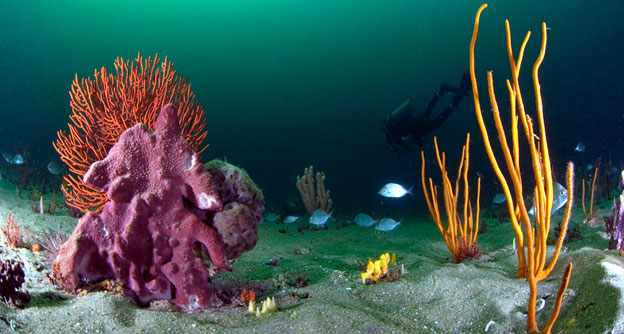A new report from NOAA’s National Centers for Coastal Ocean Science (NCCOS) describes ecological conditions and stressors in sediments and biota in Gray’s Reef National Marine Sanctuary (GRNMS), located off of Sapelo Island, Georgia. The study supports an ongoing partnership, initiated in 2000, between NCCOS and GRNMS to provide periodic environmental assessments of the sanctuary to track changes over time.

As highlighted in the report, the extensive areas of soft-bottom sediments throughout the sanctuary support highly diverse assemblages of bottom-dwelling organisms. The researchers identified approximately 790 distinct taxa.
Most chemical contaminants in sediments were at consistently low levels or below the limit of detection, and no chemical contaminants in fish or shellfish were found to exceed Food and Drug Administration human health guidelines. However, levels of inorganic arsenic in some black sea bass (2 of 35 specimens) fell within the range for which the Environmental Protection Agency recommends limiting consumption to four meals per month.
The report provides long-term monitoring data (2000, 2005, and 2012/13) that will enhance the understanding and management of the sanctuary.
For more information, contact Len.Balthis@noaa.gov.
